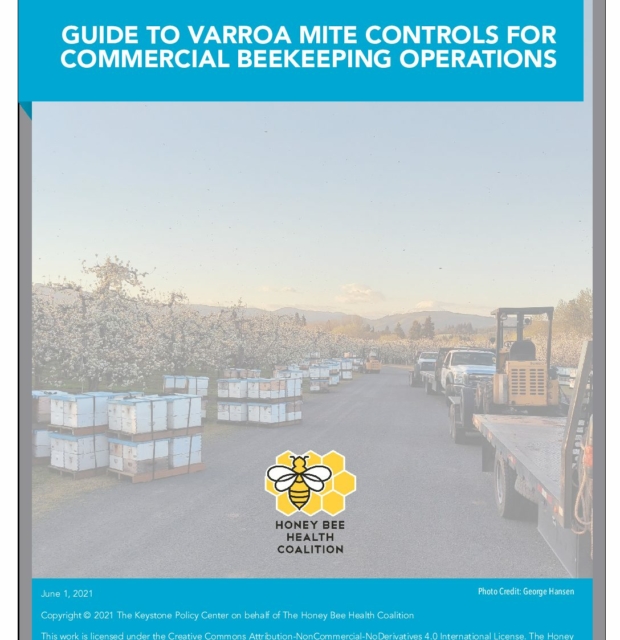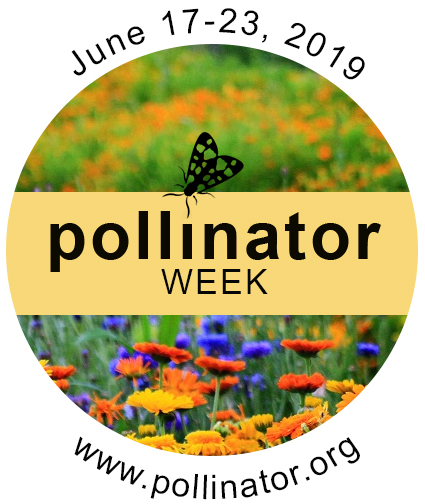News
Honey Bee Health Coalition Urges Utilizing Best Practices, Collaboration, and Integrated Pest Management Strategies Following Release of Bee Informed Partnership’s 2019 National Survey of Colony Losses
The Honey Bee Health Coalition, a diverse group of over 50 organizations working to improve bee health, urged continued cross-sector collaboration following the release of the Bee Informed Partnership’s annual national survey that showed winter losses of 37.7% from October 2018 – April 2019. Bee Informed Partnership called for increased research, Extension, and Best Management Practices.
The survey was sent to commercial and backyard beekeeping operations and is designed to track the survival rates of honey bee colonies from across the United States. According to the survey, nearly 4,700 beekeepers managing approximately 320,000 colonies responded to the call for loss data. This represents about 12% of the nation’s estimated 2.7 million managed colonies.
Bee Informed Partnership reported winter losses at 37.7%, which is the highest winter loss reported since the survey began 13 years ago and 8.9 percentage points higher than the survey average. During the 2018 summer season, beekeepers lost 20.5% of their colonies, which is slightly above the previous year’s summer loss rate of 17.1%, but about equal to the average loss rate since the summer of 2011. Overall, the annual loss of 40.7% this last year represents a slight increase over the annual average of 38.7%.
“Beekeepers and farmers take tremendous pride in their operations and are continuously working to improve the practices they put on the ground to protect bees and sustain productive agriculture. These numbers show that more needs to be done and broad-based, collaborative strategies are needed to reduce colony losses,” said Matt Mulica, a facilitator of the Honey Bee Health Coalition and a senior project manager at the Keystone Policy Center. “The Coalition is committed to implementing solutions that will help to achieve a healthy population of honey bees while also supporting healthy populations of native and managed pollinators in the context of productive agricultural systems and thriving ecosystems.”
Honey bees play an essential role in North American agriculture and global food supplies — with bees supporting approximately $18 billion annually of the fruits and vegetables found in our produce aisles. The Coalition has worked since 2014 to collaboratively implement action to improve honey bee health by addressing multiple factors influencing bee health, including hive pests and disease, forage and nutrition, and exposure to crop pesticides.
Since its inception, the Coalition – comprised of beekeepers, growers, researchers, government agencies, agribusinesses, conservation groups, manufacturers, and consumer brands – has focused on finding collaborative, science-based solutions to improving the health of honey bees and other pollinators. Recent initiatives include:
- The development and release of materials to assist beekeepers and growers including:
- Best management practices for growers to help protect bees in and around corn and canola, and soybean fields.
- A new guide for Identifying and Mitigating Foulbrood in Honey Bee Colonies and Reducing the Use of Antibiotics: Information for Beekeepers and Veterinarians.
- Best Management Practices for Hive Health: A Guide for Beekeepers.The guide includes information on reducing pesticide exposure, treating pests and diseases and ensuring adequate nutrition.
- Working with 7 laboratories in the U.S., Canada and Spain to test new compounds that can be brought to market to help beekeepers manage the deadly varroa mite.
- Working with the National Pesticide Safety Education Center to provide Continuing Education Units to pesticide applicators and advisors on the importance of honey bees to crop production, the challenges beekeepers face and the consequences of unintended exposures to honey bees; and how they can help positively impact bees and the agricultural landscapes that rely on them.
- Implementing the Bee Integrated Demonstration Project pairing beekeepers and growers to put best practices for pollinator forage, varroa mite control, and crop pest management together in one place.

